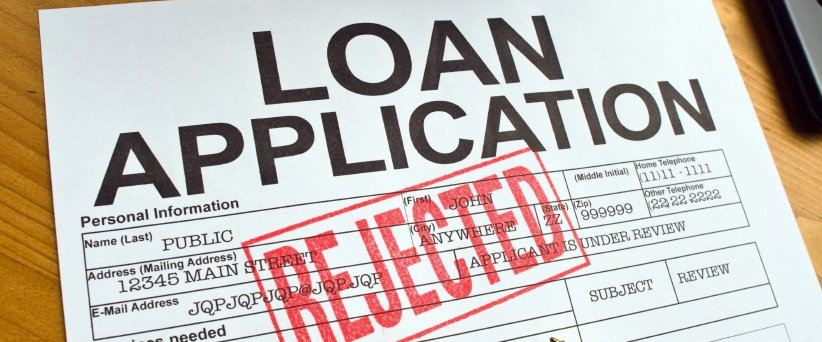How To Detect & Avoid Personal Loan Scams
If you’re strapped for cash, the offer of a personal loan may seem like just the break you need to hold you over, particularly if your credit is not so great. But be careful. Fraudsters use the frustration and desperation of those with cash and credit problems to trick them into sophisticated personal loan scams.
There are a handful of common personal loan frauds to be aware of. Of course, there are some tell-tale signs that separate the scams from the real deal. Below is an overview of some common scams and some red flags that are a dead giveaway.
Personal Loan Scam #1 – Advance Fee Loans
This scam is all about trying to get people to pay an advance fee at the time of loan approval. The scenario goes something like this: You see a compelling advertisement that guarantees loan approvals for good or bad credit.
Motivated by the ad, you submit the requested loan information and supporting documents as part of your loan application. A few hours or days later, a friendly and polite telephone caller responds with the good news. The loan has been approved, but an insurance fee, processing fee or three months advance payment is needed before the loan is released and the check delivered. You’re asked to pay the fee immediately through electronic transfer of the money.
Elated by the news of your loan approval, you wire the money. The money you wired is picked-up by the “loan” broker, but the promised loan never arrives and the up front fee paid by the consumer (which can total several thousand dollars) is lost.
In the best case scenario, this is a legitimate broker who tried to get you approved for a loan but failed. They may have some small fee as part of their loan brokerage process to offset their marketing costs. However, if it was a legitimate broker, they would disclose their fees clearly and early in the process and they would never communicate that your loan was approved. Over the past few years, many states have enacted legislation prohibiting loan brokers from charging an advance fee. So this should be an uncommon scenario.
In the worst case scenario, it’s a scam artist who never had any intention of getting you a loan in the first place. They simply orchestrated the story to get you to hand over your cash. The worst part is that they now have all your personal information from the loan application, such as your social security number and bank account information. They could use this information to rob your account or commit identity theft.
We are aware of a current scam being operated by a company claiming to be “LoansNow Financial Services” or “LoansNow Credit Services”. They are reaching out to consumers by calling from an unlisted number and informing them they have been approved for a loan ranging from $2500-4000. They are providing our LoanNow website and address in attempt to appear legitimate. The fraudsters request a bank account and routing number, claiming they will need it to deposit loan funds. They then state the consumer needs to send $250 via MoneyGram in order to either “buy insurance” on the loan” or “to verify you are a responsible and real person”. They are operating under false names such as Roger Smith, Robert Johnson, Chip Walters with cell phone numbers from the New York area, even though they are an overseas operation. We are not associated with this company in any way and if you are contacted by them, we encourage you to contact your local authorities.
Personal Loan Scam #2 – Loan Phishing Scams
When fraudsters impersonate a business to trick you into giving out your personal information, it’s called phishing. Sometimes these scams are done by impersonating the websites of well known financial institutions. Other times they spend a bit of time building a legitimate looking website offering you a loan. In either case the goal is the same: to get your personal information.
Why would somebody do this? Well, you can gather a lot of juicy information with a phishing scam. First, you can get somebody’s bank account number and password. Then you can try to hijack their assets. Some phishing scams ask for all of your personal information (SSN, mother’s maiden name, date of birth, etc) so that they can steal your identity and open credit accounts in your name. Some victims of phishing scams have given up their credit card numbers only to find that the card was used fraudulently. Or they provide their banking information to find their funds have been wired away.
Warning Signs
Let’s take a look at some warning signs.
A Lender Who Isn’t Interested in Your Credit History
A lender may offer loans or credit cards for many purposes — for example, so you can start a business or consolidate your bills. But one who doesn’t care about your credit record should worry you. Ads that say “Bad credit? No problem” or “We don’t care about your past. You deserve a loan” or “Get money fast” or even “No hassle — guaranteed” often indicate a scam.
Upfront Application Fees
Be very weary of a lender requiring you to pay an upfront application fee just to apply for a loan. Legitimate lenders will not ask you to pay anything before you receive your loan. Doing this is against federal law and lenders know they can lose their registration or license if they request pre-payment.
Personal loan scammers will justify the fee by calling it a processing fee or even try to classify it as collateral required because of your bad credit. Of course, once you pay this bogus advance fee, the scammer will take off with your cash, leaving you in an even worse position than where you started.
Pressure to Act Immediately
Advance fee loan scammers will try to get you to send money or give out personal information (credit card number, bank account information and social security number) before you even get any paperwork. Insist on receiving the necessary paperwork before deciding whether to apply for the loan or line of credit.
Bad Credit, No Credit, No Problem
When a lender claims not to care about your credit history, or has ads that guarantee you will be approved, be skeptical. Legitimate lenders don’t guarantee they can approve a loan until they have assessed your credit history or at least confirmed whether the information on your application form is correct. Even payday loans require you to have a job and a bank account.
Personal Information
Never give your credit card account number, bank account information or social security number over the telephone or Internet unless you are familiar with the company and know why the information is being requested.
Wiring Money
If a lender asks you to make a payment on your loan by wiring money or by paying directly to an individual – run! You are most likely dealing with a con artist. The United States Government has strict mail fraud laws that can put scammers away for up to 20 years if they communicate via telephone or U.S. mail to commit their crime. So naturally, they prefer to use other methods to steal your cash, such as wiring it through Western Union or MoneyPak. Scammers also like using these companies because once you wire the money, it is extremely difficult to trace, particularly when it is wired to individuals or companies in other countries.
Questionable Connections to Established Financial Institutions
Many of these schemers are merely telephone sales operations, so no connection will exist to an established financial institution. Ask which lenders the “loan broker” deals with, and ask for the physical address of the lender. Additionally, crooks give their companies names that sound like well-known or respected organizations and create websites that look professional. Some scam artists have pretended to be the Better Business Bureau, a major bank, or another reputable organization; some even produce forged paperwork or pay people to pretend to be legitimate references. Always get a company’s phone number from the phone book or directory assistance, and call to check if a loan company is legitimate.
Will Not Provide Location Information
If the loan broker hesitates to tell you their physical location, beware that this is a common ploy to avoid law enforcement detection. Refuse to do business with the broker until you have their physical address or location so that you can do more research. Be wary of PO Boxes. A company that advertises a PO Box as its address is one to check out with the appropriate authorities.
Not Registered in Your State
In the United States, lenders are required to register in every state they do business in. Before you do business with any lender, call your state Attorney General’s Office or your Department of Banking or Financial Regulation and check whether the business is registered. Although having a registration does not guarantee you will like the service the company offers, it will help filter out the personal loan scammers.
It’s also a good idea to check with the Better Business Bureau to see whether the lender is registered and what the lender’s BBB rating is.
The Bottom Line
When you have bad credit and you need cash fast, it’s easy to get desperate and let your guard down. Be skeptical about any personal loan offer you receive, regardless of where you hear about it or how convincing and slick the promotion looks. Scammers work hard to make their personal loan scams look professional and legitimate.
However, this doesn’t mean that there aren’t legitimate and reputable lenders around who are willing to do business with those who have less than great credit. At LoanNow, we make it our business to help people with poor credit get back on track. We are registered in all the states we do business in, have an A+ rating with the Better Business Bureau, and although we can’t guarantee we will approve your application, we can promise we will do everything we can to help you qualify for your loan and improve your overall financial situation.





I received a call and an e-mail today from a company called LOANS NOW LLC and a Mr. Jonathan Smith. Their telephone number is 1 937 471 5064 which according to my caller ID is located in Springfield, Ohio. They told me I qualified for a loan of $8,000. I told them I was not interested.
Thank goodness! We’ve had a bunch of people calling about these scam artists.
Add me to the list. I just got a call and email — I am hopping mad!
So does this mean the Johnathon Smith is fake?
Wow I got a call and a text from the same number today!!! I don’t even remember applying for a loan at any loan website either!!! Good thing I wasn’t going to respond anyway.
I had several calls from two numbers claiming to be US bank. They are just fraudulent phone numbers and the people calling are not from the US Bank they claim to be from. When I que them they said they like scamming people. The numbers are 1-323-375-8567. And 1-424-263-9651
Hello I have a question I had a guy call me from a Texas number 512 402 3595 saying he is from loan now said I was aproved for 3000 but needed 10% ($300) down because of my low credit score. Can you tell me if it’s true I asked what the name of his business he was callin from was and he said out of Austin Texas and they aren’t a bank they work for financial services.
The guys name is Harry Wilson extra 111
I just applied for a loan on your Website and it said not available in my area how do I go about stopping that person from using my personal information
We are not associated with the Harry Wilson that called you. It is likely a scam artist.
I too got a call from Harry Yesterday and he had an Austin, TX area code like where he said he was from. He had my Bank Info and S.S. # and then told me funds would be sent to me but I had to send $250.00 to obtain a 750 Fico Score to Qualify for the Loan. I was in Mtg. Lending and I know for a fact you can not buy yourself a Better Fico Score. So I told him it sounded fishy and he kept saying No Worries!!! He then said he needed my Username and Password for my Bank Account and that’s when I said WHOA!!!!! He also quoted me 10% for 2 years and I had some credit issues due to economy and also being in Mtg. Business so I knew 10% was not right or even realistic!! He never waivered or got upset he just said were not a Scam and feel free to call us back if you change your mind and politely hung up. I re-dialed the number and sure enough they answered LoanSNow ?????? So I google them and this Site came Up. TY so much for having this out there because I am sure there scamming people right and left. Also it was so noisy in the background I could hardly hear him. Typical Boiler Room Operation. I contacted the P.D. and they said to call the Federal Trade Commission at 1-877-382 -4357 and report them. Again TY for posting this and letting others know about it.
Well these fuckers tried to get me and i got them 2000 dollars these sand niggers are stupid its all a scam
im very confused about this blog is it saying http://www.loannow.com is a scam??? it doesnt make since to me because its posted on the site so what is it referring to?
We are a real company. What this article is explaining is that there are scam artists cold-calling people pretending they are us and letting them know they were pre-approved for a loan. They then ask you to send them money as a deposit for the loan. They take your deposit and you get nothing in return.
Omg …..my brother got a call from Jonathan Smith ….he was told he could borrow $8000 ….but needed to send $300 to cover the cost of the wire transfer …they told him to buy an iTunes card read them the # on back of the card he complied he heard nothing …the next day….Jonthan Smith called and said that could not complete the transfer because his credit rating was so low the FDIC wouldn’t allow the transfer..so in order to get the money he needed to send them an additional $400…so the money could be sent via moneyGram….well now he could smell a rat and refused to send the additional monies …he was told they would refund his money within 14 business days ……that was TWO MONTHS AGO…..
I received an email from Loans Now using the website unsecuredpersonalloansnow.com. Is this legit?